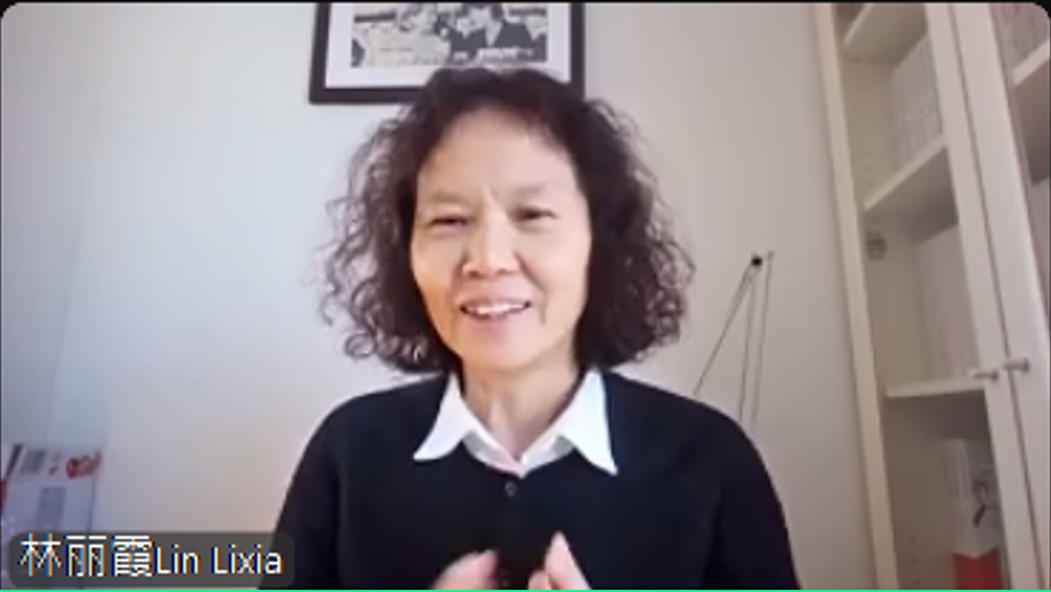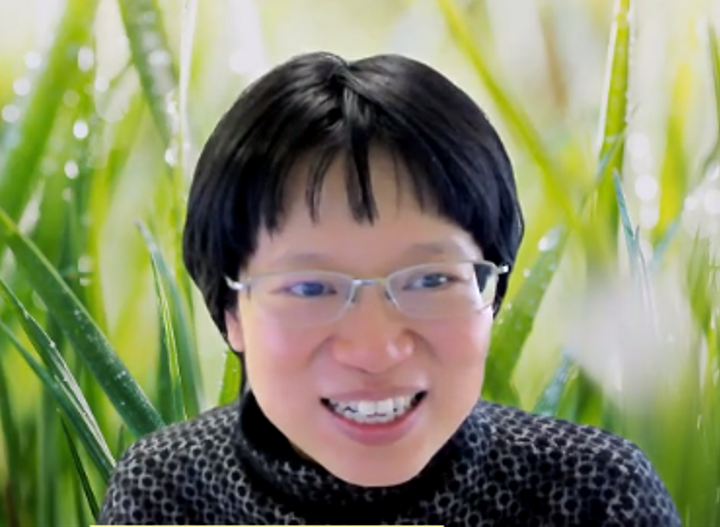Ms. Lin Lixia conducted an insightful lecture on the land rights of rural women in China, highlighting the legal challenges they face. With rural economic development and rising land value, issues related to women’s land rights have become increasingly prominent. However, local governments and judicial organs often shirk their responsibilities under the pretext of “villagers’ autonomy”, leaving rural women’s legitimate rights unprotected.
Using five case studies from different regions, Lin demonstrated how women are systematically denied land rights. These cases involved disputes over compensation, shareholding, membership, relocation, and enforcement. The affected groups included women who marry out, are divorced or widowed, or remain unmarried. They face obstacles in accessing land contracting, management, benefit distribution, and resettlement. The root causes lie in patriarchal traditions, which treat women as “mobile populations” the rigidity of land policies in the context of women’s marital mobility, and discriminatory village rules.
While current laws, such as the Law on the Protection of Women’s Rights and Interests, contains provisions to protect women’s rights, they remain insufficient in practice. Courts often reject relevant cases, and administrative oversight of village regulations is weak. The Law on Rural Collective Economic Organizations marks progress by requiring equal membership qualifications and protecting married women’s rights, but its lack of detailed implementation measures limits its impact.
To address these issues, several solutions were proposed. Strengthening legal protections, such as establishing clearer membership criteria and empowering authorities to overturn discriminatory village rules, is essential. Enhancing government oversight was also emphasized, with suggestions to incorporate this responsibility into performance evaluations. Public interest litigation was highlighted as a critical tool to safeguard women’s collective land rights, while education and advocacy were seen as key to promoting gender equality and challenging traditional biases. Lin emphasized that rural women’s land rights are a systemic and persistent issue, calling on society to promote legal and policy reforms to ensure equal rights and dignified living conditions for rural women.
Written by: Tong Yuaxin
This seminar focused on the land rights of rural women. Lawyer Lin Lixia from Beijing QianQian Law Firm presented six typical cases to show us the dilemma of rural women in some areas who have lost their rights and are struggling to protect their rights.
The six typical cases were located in rural areas of Zhejiang, Guangdong and Shandong. Women were involved in disputes over land, equity, membership in Collective Economic Organizations, housing removal and resettlement, and distribution of land lease payment due to marriage issues. Marriage deprives rural women of their subjectivity as human beings. In their natal village, they are regarded as married women and thus lose the rights they should have enjoyed in the village. In their husband’s village, they are regarded as foreign daughters-in-law and cannot enjoy the legal rights as villagers. Under the influence of outmoded conventions, “Villager Autonomy” lacks scientific, democratic and legal basis. Women’s rights are not determined by women’s will. They are passively bound to men. Women’s property rights, economic rights, collective membership and their children’s right are all dependent on their husband. At the same time, the way to protecting rights for rural women is also very difficult. The local government, courts and village committees blame each other, no action and refuse to hold anyone accountable. Villager Autonomy is used as an excuse to ignore women’s demands for their legal rights. This has caused rural women to be trapped in a long-term plight of “defending their rights after losing them, and losing them while defending them.”
To change this situation requires the collaboration of multiple forces. For example, we should re-legislate to determine the boundaries of Villager Autonomy and strengthen the protection of women in the law of Rural Collective Economic Organizations; hold local governments and judicial organs that are lazy and slack in their work accountable; raise the awareness of the general public to respect women’s rights and provide necessary legal aid for rural women.
Written by: Kao,Li-ying
本次講座題為“農村婦女土地權益問題討論——失地婦女的維權困境及出路”,來自北京市千千律師事務所的林麗霞律師圍繞農村婦女土地权益問題分享了他們的實踐、探索與研究。主要內容包括典型案例介紹、村民自治權與成員資格權的邊界與裁定爭議、農村集體經濟組織法對婦女權益保障的不足、婦女土地權益的未來出路及這一問題的公益屬性等六個部分。
在最開始,林律師介紹了五起典型糾紛案,這些糾紛既涉及到農村婦女在徵地補償款、股權、福利等集體收益分配方面以及宅基地和拆遷安置補償分配方面的權益受損問題,也涉及到農村外嫁女子女的成員資格權問題,更涉及到已勝訴案件的具體執行問題。通過對這五起典型案例的剖析,林麗霞律師指出,目前國內農村婦女的土地權益受損問題是很嚴重的,並且經濟發達的地區由於土地價值更高,對婦女權益的侵害更嚴重。而這些農村婦女土地權益問題發生的原因不僅在於農村地區強制從父居的婚姻習俗等傳統因素,也在於立法層面上成員資格權的立法缺失以及一些地方政府和法院對婦女權益的不重視並將這一問題推回給村民自治等多重因素。
但事實上,針對有關部門將有關農村婦女的土地權益問題推回給村民自治這一作法,林律師表示,在法理上,村民委員會其實並不能決定外傢女的成員權益,而集體成員資格權作為一種民事權利也應當由有關部門制定法律進行規範,而非由村民自治來表決決定。除此之外,林律師還提到了即將於2025年5月1日正式實施的《農村集體經濟組織法》,並分析了這一法案對女性土地權益的影響。她提出,儘管這一法案在關於成員資格認定的核心條款上有所進步,但實質上仍然只是一個概括性的規定,其中一些具體條件在實施層面可能難以操作。但與此同時,林律師也提到了一些地方政府和法院積極作為,出台了一些文件與調解方案,做好了對村民自治權的合法性審查,判決支持出嫁女的訴求。
講座的最後,林律師對農村婦女的土地權益問題的未來出路提出了四點建議,一是要加強基層政府對村民自治的糾錯指職責,二是要明確政府和法院對村民不依法自治的行政和司法審查職責,三是要從源頭上在村規民約中納入性別平等理念,最後是要積極探索和啟動檢察公益訴訟制度,因為公益從本質上是追求社會正義,對弱勢群體進行保護,而一直以來婦女權益一直在受到系統性的侵害,更需要我們攜起手來,共同努力。
總的來說,本次講座加深了我們對農村女性土地權益問題的了解,為我們進一步推進農村女性權益保護提供了新的思路與方向,我們也呼籲各部門能夠各司其職,切實保護農村女性獨立、平等的財產權益,
Written by: CHENG Haoyan
林麗霞律師在本次講座中探討了農村婦女土地權益問題,揭示了婦女在農村集體經濟組織中的權益保障困境,並從制度層面提出了相應的建議和改善措施。林律首先分享了幾起典型案例,概述了婦女(外嫁女群體為主)的土地權益受損的狀況,揭示失地婦女在村民自治和集體土地分配過程中受到的歧視與不公,以及其中的法律和政策上的空白。林律指出,農村婦女土地權益問題發生的原因主要在於農村的強制從夫居的婚姻習俗,女性隨婚姻流動與不變的土地制度之間的矛盾,集體利益分配過程中對婦女的排斥,地方政府與法院對婦女權益的忽視以及成員資格權的立法缺失。村民會議可決定如土地承包經營方案、征地補償費的分配等公共事務,但村民自治權的邊界不清,常被濫用,侵害婦女的合法權益。《農村集體經濟組織法》為婦女權益提供了一定保障,但在實踐中未徹底解決外嫁女和離婚女等婦女的成員資格認定問題,地方執行缺乏統一標準,傳統習俗和性別歧視依然對婦女權益有極大影響。部分地方行政和司法機關積極調整政策,出臺檔和調解方案,履行好對村民自治權的合法性審查,支持婦女權益保護。新修訂的婦女權益保障法賦予檢察機關介入的權力,檢察公益訴訟成為保護婦女權益的重要途徑。林律提出,通過檢察公益訴訟制度和基層政府監督,可更有效地提高性別平等意識,促進村規民約的改善。她強調了農村婦女土地權益的公益屬性,這早已不僅僅是個人維權問題,更是一個社會公益議題,她主張通過立法、司法、行政的協同努力,完善法律機制,保障婦女的合法權益,推動社會公平與性別平等,促進法治的進步與發展。
Written by: ZHENG Ziwei
在1月15日的講座中,李麗霞律師通過案例分析介紹了農村婦女土地權益問題,詳細闡述了這些失地婦女的維權困境和可能的出路。李律師指出,農村女性因其婚姻流動,其土地權益得不到保障。所謂“出嫁女”不僅包括因結婚、再婚、離婚、喪偶而喪失了權利的女性,也包括未婚女性。在一些村規民約中,超過一定年齡的未婚女性就“不得參與任何分配”。所以根本上,農村女性不是因其婚姻流動狀態,而是因其性別弱勢,因農村土地安排背後固著的父權制而失權。在案例分析中發現,即使上訴的女性證據充足,法律證據充分,仍可能得不到政府和法院支持。而即使得到支持,村集體也可能拒絕執行相關安排。失地女性在娘家村和婆家村均受排斥,而政府和法院又往往以村規民約而非性別平等的憲法要求為先,村規民約踐行著使女性財產權依附于丈夫、使女性成員權和股東權相分離的歧視性觀念。村民自治中基於性別的侵權和暴力在“群體利益”的幌子下得到遮蔽:一方面,是村集體在土地安排中踐行著對於外姓人和女性的歧視,並以“少數服從多數”的準則強加于被侵權的女性;另一方面,是基層政府的不作為和無擔當,不僅沒有履行對於村民自治的監管和糾錯,而且將失權女性的問題重新推回給村民自治,使得村法實際上淩駕於國法之上。失權女性得不到救濟,還可能遭到村民報復。有時地方政府的檔甚至直接歧視結婚農村婦女的權益,更加大了救濟難度。女性在家庭、村集體和政府層面都遭受歧視,權利得不到認可。要改變現狀,不僅要善用保障婦女權益的相關法律,更要明確村民自治的邊界,加強基層政府對村民自治的糾錯職責,在村規民約中納入性別平等,改變歧視性觀念和實踐,同時積極探索對類似情形進行系統維權的公益訴訟制度。
Written by: WEI Zerui





A
A
A
聯絡我們